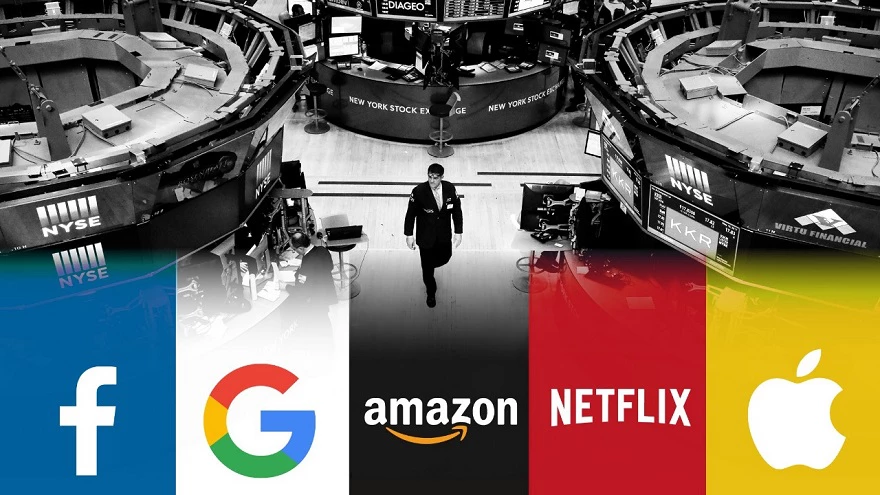Marketing science is the application of data and analytical methods to understand consumer behavior and optimize marketing strategies. The field has grown rapidly in recent years as technology has advanced, making it easier for businesses to collect and analyze data on their customers. By analyzing customer data, businesses can better understand their target audience, identify patterns and trends, and make informed decisions about how to market to them.
The use of artificial intelligence (AI) and machine learning (ML) in marketing science is also on the rise. These technologies allow for automation of data analysis and can even predict consumer behavior, enabling businesses to make even more accurate and efficient decisions. In the near future, the use of marketing science will become even more widespread as technology continues to advance, and not applying marketing science can leave businesses behind in today’s digital landscape.
With the abundance of data available, businesses that don’t use marketing science to inform their strategies risk making decisions based on intuition or incomplete information. This can lead to missed opportunities, wasted resources, and ultimately, a failure to stay competitive in the market.
History is filled with examples of companies that failed to innovate and paid the price. One of the most notable examples is Kodak, the once-dominant film and camera company that failed to adapt to the digital age. Despite inventing the first digital camera in 1975, Kodak failed to capitalize on the technology and instead continued to focus on its film business. As a result, they were quickly overtaken by digital camera companies like Canon and Nikon.
Another example is Blockbuster, the video rental chain that was once the dominant player in the industry. However, the company failed to adapt to the rise of streaming services like Netflix and Hulu and as a result, it filed for bankruptcy in 2010. Or remember the retail giant Sears, which failed to adapt to the rise of e-commerce and digital marketing, and as a result, it filed for bankruptcy in 2018.
These are just a few examples of companies that were ultimately left behind by their competition. In today’s fast-paced business environment, it’s crucial for companies to continuously adapt and evolve in order to stay relevant and competitive.
There are a variety of companies that make excellent use of marketing science to stay ahead of the competition. Some examples include:
- Amazon: The e-commerce giant uses data and analytics to personalize the shopping experience for each individual customer, resulting in increased sales and customer loyalty.
- Netflix: The streaming service uses data to recommend content to viewers, as well as to make decisions about which shows and movies to produce. This has led to the creation of hit shows like “Stranger Things” and “The Crown.”
- Google: The search giant uses data and analytics to improve the relevance of search results, as well as to target ads to specific audiences. This has made Google one of the most successful companies in the world.
- Facebook: The social media giant uses data to personalize the news feed for each individual user, as well as to target ads to specific audiences. This has made Facebook one of the most successful companies in the world.
- Procter & Gamble: The consumer goods giant uses data and analytics to improve the efficiency of their supply chain and to make better decisions about which products to bring to market. This has led to increased sales and profits for the company.
By leveraging data and analytics, these companies are able to make better decisions, improve the customer experience, and drive growth. As a result, they are able to stay ahead of the competition and continue to succeed in the marketplace.
Marketing science is a rapidly evolving field, and its future trajectory will likely be shaped by a number of different factors. Some of the key trends that are likely to shape the future of marketing science include:
- Increased use of artificial intelligence and machine learning: As these technologies continue to advance, they will enable marketers to analyze and make sense of vast amounts of data more quickly and accurately than ever before. This will help businesses to better understand their customers and develop more effective marketing strategies.
- Greater emphasis on personalization: As consumers become more and more accustomed to tailored experiences, businesses will need to find ways to deliver personalized content and messaging to different segments of their audience. Marketing science will play a key role in helping businesses to achieve this.
- Greater use of multichannel marketing: With consumers interacting with brands across a variety of channels, businesses will need to find ways to coordinate their marketing efforts across different platforms. Marketing science will be essential in helping businesses to understand how to best allocate resources and measure performance across different channels.
- More focus on the customer journey: As businesses begin to focus more on the entire customer experience, marketing science will play a key role in helping businesses to understand the various touchpoints and interactions that customers have with a brand.
- An emphasis on real-time data: As businesses begin to focus on providing more immediate value to customers, marketing science will help them to make sense of real-time data to understand consumer behavior and make timely decisions.





